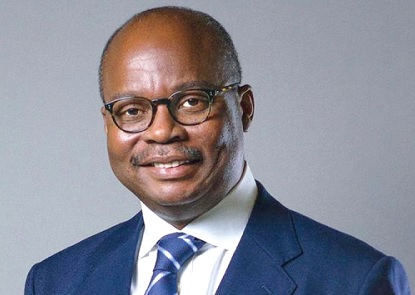
Rejoinder: Bank of Ghana responds to Ahumah Ocansey’s allegations
Bank of Ghana’s attention has been drawn to a publication in the Friday, 9th June 2023 edition of the Daily Graphic and authored by Ahumah Ocansey, under the caption “Misapplication of Money Laundering Act by Ghanaian banks”.
In this publication, the writer sought to impugn the integrity of the banking system by serving a public notice to the Chief Justice and the Ghana Bar Association to the effect that information available to him suggests “subterranean, pervasive and conscious misapplication of the Anti-Money Laundering Act, 2000 (Act 749) by Ghanaian banks, including the Bank of Ghana, resulting in the seizure of enormous monies remitted to Ghanaians from outside”.
The writer went further to explain with a scenario that a person opens an account with a bank without proper due diligence, however, when large sums of money are remitted into the account, then the bank seizes the money under the guise of anti-money laundering laws and eventually appropriates the said money as income and distributes it among its directors.
Anti-money laundering
The Bank of Ghana, based on the submissions of the writer, is tempted to conclude that it seems the writer is not familiar with the anti-money laundering laws and the procedures, including processes governing the laws.
Firstly, banks have no right to seize monies of customers remitted through them to their customers.
Banks can only file Suspicious Transaction Reports (STRs) to the Financial Intelligence Centre (FIC), the regulator of Anti-Money Laundering and Countering of Terrorist Financing (AML/CFT) activities in the country.
When after due diligence they become suspicious the transactions might breach the provisions in the money laundering laws; and on receipt of the STR, the FIC may administratively freeze the accounts for one week for preliminary investigations and subsequently, when they believe further investigations are needed to be conducted, obtain a court order for a longer period (possibly one year, renewable) and then transfer the case to an investigative body such as the Economic and Organised Crime Office (EOCO) for further investigations.
Where the transaction is investigated and the customer is found culpable, then the customer is arraigned before court for prosecution and possible conviction and confiscation of assets.
Financial Action Task Force
Secondly, the Anti-Money Laundering Act, 2000 (Act 749) that the writer copiously referred to in his article has been repealed by the Anti-Money Laundering Act, 2020 (Act 1044).
Regulations and guidelines thereto have since been prepared to govern the law in conformity with the Financial Action Task Force (FATF) Recommendations.
FATF is the world body that sets the standards for the Anti-Money Laundering and Countering Terrorist Financing regimes in countries.
The Bank of Ghana wishes to state for the record that, to the best of its knowledge, all cases that have come to its notice involving monies purported to have been transferred to customers which appear fraudulent have been reported to the security agencies, including EOCO for investigation and possible prosecution, and confiscation of assets.
The Bank of Ghana will want to take the opportunity to assure the public that as a Competent Authority, it conducts effective Anti-Money Laundering off-site and on-site examinations on its regulated institutions and applies sanctions to the institutions proportionate to the level of breaches.
The Bank of Ghana has also opened channels for redress of customer complaints in case they are not happy with the services of the regulated institutions.
Given the foregoing, it is apparent that it will be very difficult for banks or any of the regulated institutions to misappropriate foreign transfers into customers’ accounts.
The FATF recognises and refers to Lawyers, Accountants and other professionals, who perform services on behalf of their clients in executing transactions as ‘gatekeepers’ as they will have to contend with managing the risks of the transactions of their clients.
The Bank of Ghana will therefore want to urge these ‘gatekeepers’ and indeed the general public to familiarise themselves with the Anti-Money Laundering laws, procedures and processes for them not to be taken advantage of by miscreants in society.
